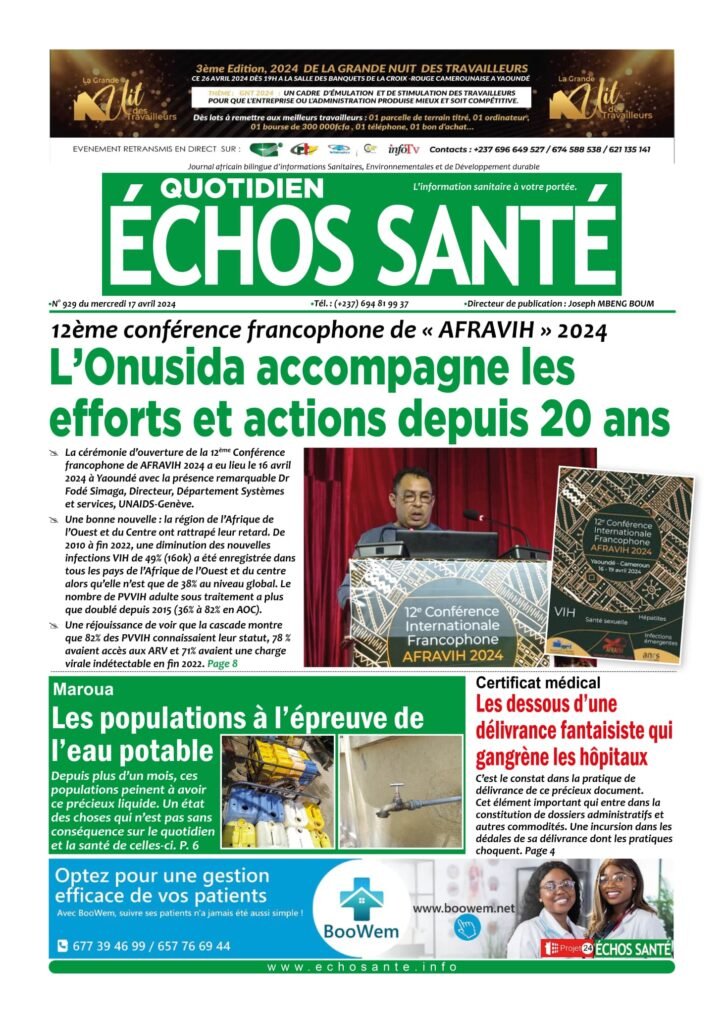Sanitation – Streets In Yaoundé Transformed Into Public Toilets

Yaoundé city dwellers have turned the streets into their urinating spots. This is a phenomenon that keeps growing by day. This act is not only detrimental to the health of inhabitants of the city, but to the esthetic and hygienic conditions of the town.
At the Mvog-Mbi neighborhood located in the Yaoundé IV subdivision, a man with a influential body size is seen beside a placard that reads «Forbidden to urinate here” and “interdit d’uriner ici” doing just the opposite. When such persons are intercepted, they advance reasons for their acts.
“I know it is not good, but the fact that they are limited public toilets pushes me to free my bladder wherever I can. I cannot bear keeping urine. Besides, the few toilets available are quite expensive”, Boh Aloycious told Échos Santé.
“At the Melen neighborhood for instance, one pays FCFA100 just to urinate in a public toilet. So just imagine me urinating at least twice a day. That’s very expressive. I cannot afford, so this issue has to be looked into, before we can use the toilet,” he went on.
To other persons, Cameroon isgraduallydrivingtowardsthe2035emergence, and such acts should not be carried along. To them, passing out water in streets is embarrassing, unhygienic and should be condemned by the law.
To Hilary Sonia, “we Cameroonians need to be civilised enough to know that public toilets are meant for urinating, and not the streets. It is so embarrassing seeing people doing this in public places. It is true that toilets are not really found along every street, but urinating carelessly is not a solution”.
However, they are citizens who are responsible enough by not letting themselves go into error by urge of passing out water. They either use the toilet when pressed, or take other advisable measures. This set of people lament that some persons even go up the sad extent of defecating by the road or around public buildings. People who own houses along the road have seen the walls of their fences destroyed with urine.
Most spots reserved for the dumping of waste have been transformed into toilets. These areas stink and are constantly wet with urine. This it should be noted comes to worsen the poor state of waste management and the unhygienic condition of the city.
People who have transformed streets into toilets are ignorant about the repercussions of their acts. Pungent streets because respiratory problems to its inhabitants, pollute the atmosphere, and attracts inserts like flies and mosquitoes into the environment. These inserts are a principal cause of malaria. Again, the most visible consequence of polluting streets with urine is that it soils the image of the city.
All attempts mad by this reporter to reach the mayor of the Yaoundé IV subdivision to know what the council is doing about this phenomenon ended in a deadlock.
Citizens who fall pray of this act as a result of answering to nature’s call proposes that public toilets should be made available and at little or not cost. Fabove Gael told Échos Santé that “toilets should not only be made available, but the powers that be should ensure that these toilets are in good state. This way, we will even be motive to pay”.
It should be noted that some persons urinate or defecate in streets not because toilets are not available, but because these toilets are in deplorable conditions. They thus prefer to use the street than to carry diseases in toilets.
Ingrid KENGNE














